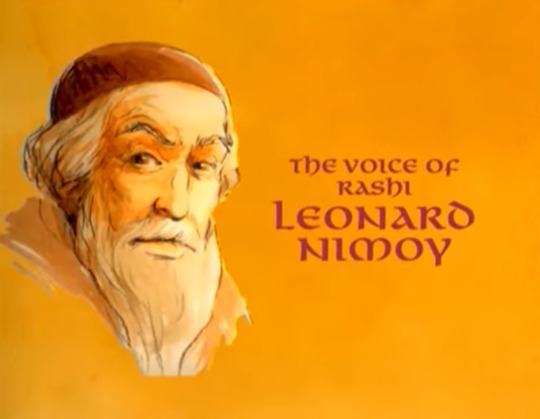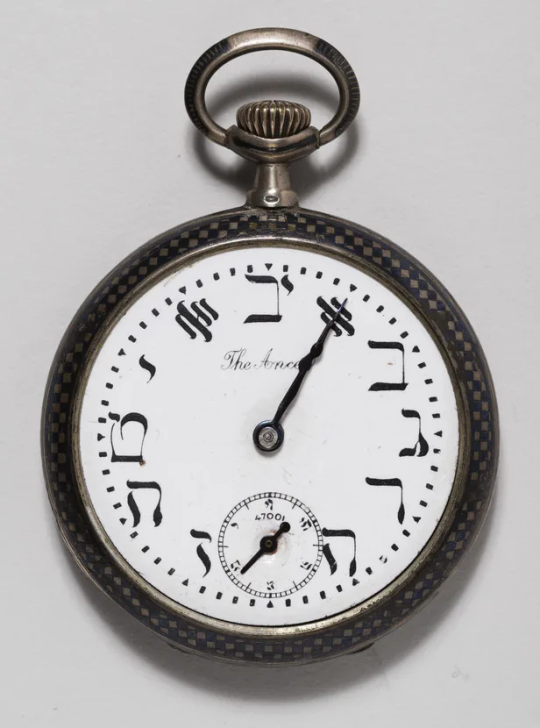Spirituality and religion blog, focusing mostly on Judaism, with other spiritual and metaphysical topics reblogged from time to time. Born 1987, queer, transgender, and autistic. they/them pronouns.
Don't wanna be here? Send us removal request.
Text
"Kill them with kindness" wrong. 10 PLAGUES OF EGYPT!🩸🩸🩸🐸🐸🐸🪰🪰🪰🐅🐅🐅🐂🐂🐂🥵🥵🥵⛈️⛈️⛈️ 🦗🦗🦗 🌑🌑🌑🪦🪦🪦
15K notes
·
View notes
Text
You've heard of Oy Vey, I'm Gay, now get ready for
VEY ZMIR, I'M QUEER
320 notes
·
View notes
Photo

Sabbath candlesticks
Lvov, Poland, 18th century
Silver, repoussé, engraved, and punched, H: 23; Diam: 20 cm
104 notes
·
View notes
Text
As we approach the Trans Day of Visibility (3/31), just a reminder that
TRANS RIGHTS ARE A JEWISH VALUE.
I see you all, and you’re all beautiful.

328 notes
·
View notes
Text


I thought I'd make some little tzedakah pouches.. I've never seen a little pouch for it before, but I know it's helpful in terms of my own bag to keep it separately contained?
291 notes
·
View notes
Text
In honor of Leonard Nimoy’s 93rd birthday, I’d like to shine a light on a couple of his lesser known roles: those of Rashi and Maimonides, two great Rabbis in Jewish history.


Nimoy hugely influenced me not only by his portrayal of Spock, but through the ways he showed the world his Judaism without fear, and with nothing but love and pride.
Happy heavenly birthday, Mr. Nimoy. May your memory be a blessing. 🖖🏻
2K notes
·
View notes
Text

Pocket watch from Switzerland, early 20th century. Silver; niello; enamel.
1K notes
·
View notes
Text


Spice Container by Firm of Neresheimer, Hanau, Germany, late 19th to early 20th century

Spice Container, Bohemia, Moravia or Poland, late 18th-early 19th century

Spice Container, Berdichev (?), Russian Empire, 1810-20

Spice Container, Venice (Italy), 17th-18th century

Spice Container, Yemen or Palestine, late 19th-early 20th century

Spice Container, Poland, 1881

Spice Container, Poland or Russia, first half 19th century

Spice Container, Poland or Russian Empire, 19th century

Spice Container by L L or S S, Poland, first half 19th century

Spice Container, Poland or Russia, first half 19th century

Spice Container, Frankfurt am Main (?) (Germany), c. 1550, repairs and additions 1650/51
Some of my favorite spice containers from The Jewish Museum NY's website
62 notes
·
View notes
Photo

Torah scroll case and ornaments from Afghanistan, 20th century.
279 notes
·
View notes
Text

Sefaria's email unsubscribe footer is actually insane hahahah
1K notes
·
View notes
Photo

Yemenite talit (prayer shawl), early 20th century
469 notes
·
View notes
Text

When you still have leftover math from pi day and then it's Purim
4K notes
·
View notes
Text
A Brief Note to Gerim, Converts to Judaism:
Y'all are some of the most commited, knowledgeable, active members of your communities and I love you for it.
You're not a Jew because of an accident of birth, you chose to be a Jew. I can't think of anything more Jewish than choosing to be a Jew, as an adult, with full knowledge of what that can entail.
I didn't have to choose it. It was given to me, with little effort on my part. You had to work for it.
I hope you feel the love I'm trying to send to you because it is sincere and heartfelt.
Don't let the momzers grind you down.
208 notes
·
View notes
Text
The exit sign of a middle school hallway is a sort of mezuzah for tween boys if you really think about it.
5K notes
·
View notes



